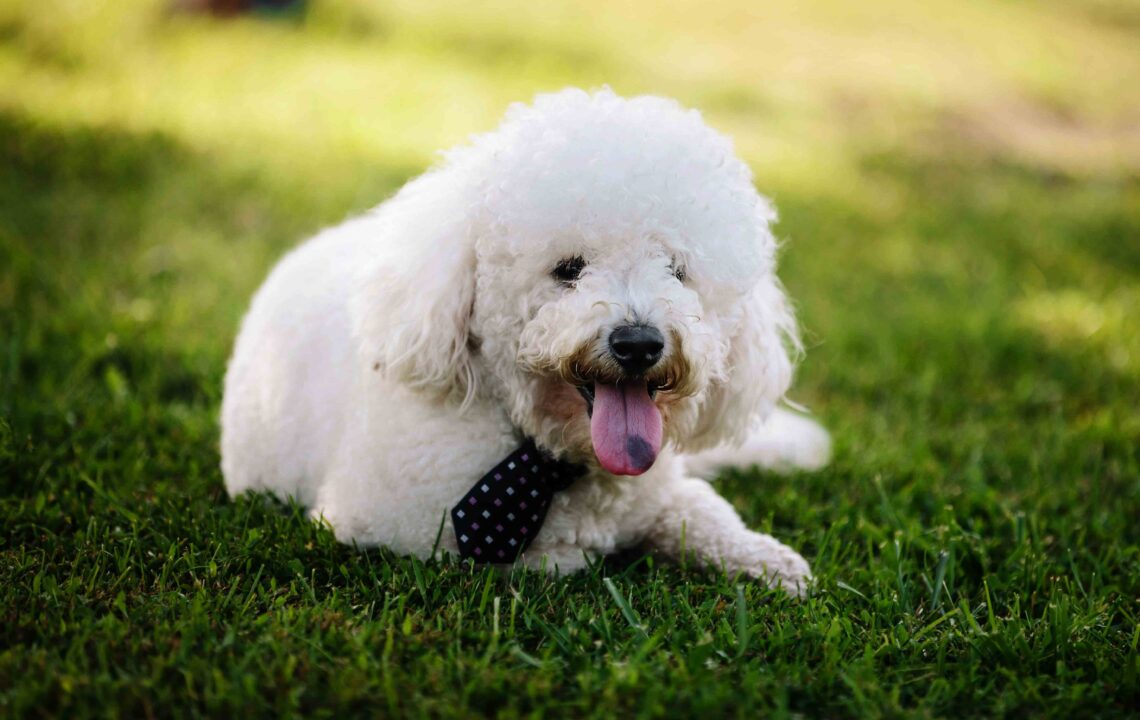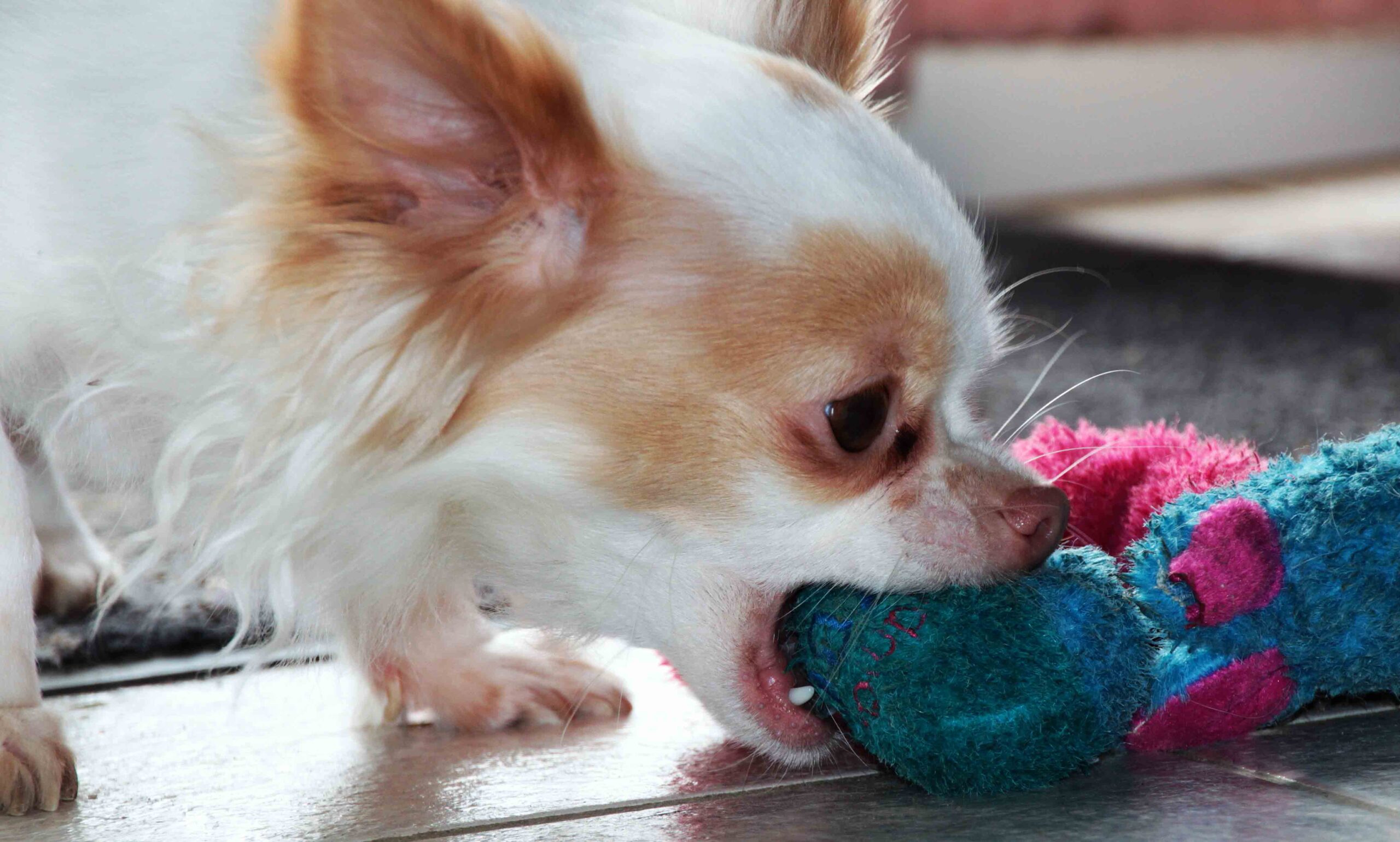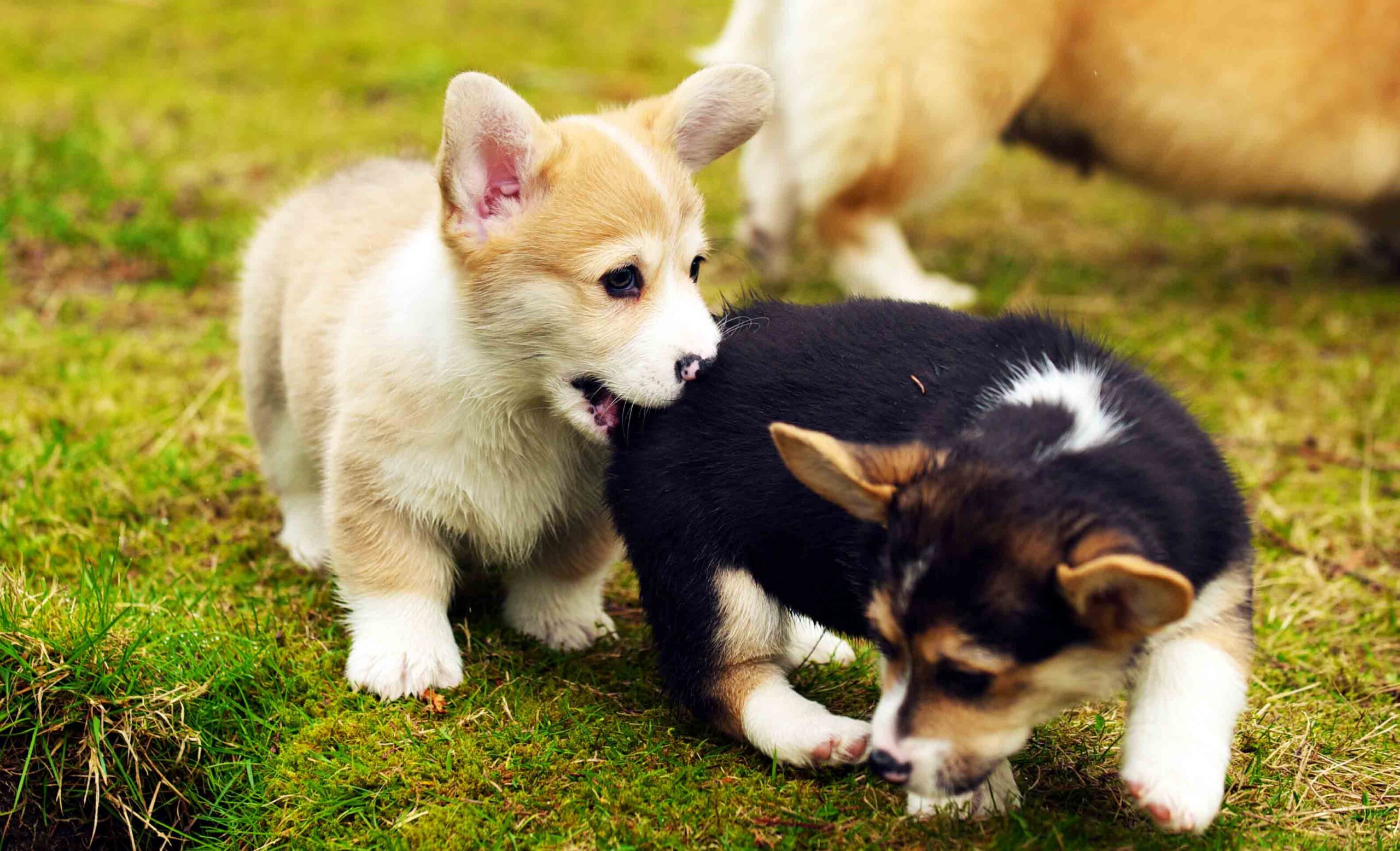
When is Do Puppies Stop Biting?
Puppies are one of the most adorable creatures globally, but their sharp teeth and playful nature mean that they can sometimes leave you with some painful bite marks. The question then becomes when do puppies stop biting? There are some rough guidelines based on dog breed that you can follow, but your puppy’s age and personality will have just as much of an effect on his biting habits as his breed does. Here’s what you need to know about puppy biting and how to curb it so you can enjoy all of the cute without any of the pain.

First Few Days in a Puppy’s Life
When you bring home a new puppy, you’ll have a few days to try to get your dog comfortable in its new environment. This means that your puppy will be biting more than usual during those early days—but never fear! Most puppies have settled into their new homes by day three or four and won’t be biting nearly as much. Even so, it would help if you kept tabs on your puppy’s behavior. For example, if you notice that he looks pretty skittish and is cowering when people approach him, it could be that something isn’t right (like an underlying health problem). Of course, if you want to train your dog not to bite while she’s young, it’s crucial that she feels safe around humans.
Follow Your Dog’s Lead
For most puppies, biting is a form of play. If your puppy mouths you and it’s not painful, just let it go—the behavior will stop when he no longer finds it fun. As your puppy gets older and more mature, he’ll have more self-control and will be less likely to use his mouth aggressively. Until then, give him toys that can stand up to some chomping while discouraging mouthing on hands and feet by keeping him on a leash or putting him behind a gate or baby gate when he’s out of his crate or kennel area. Your dog should quickly learn that there are far better options for playing than using his teeth on you!

Reward Good Behavior
If your puppy is biting and you don’t want them to, then there are a couple of ways you can use positive reinforcement to encourage good behavior. When your puppy bites, do not react in any way; immediately divert their attention to something else. After a few seconds, introduce a new toy or game for them to play with. Reward them for interacting positively with that object or game. It’s important not to punish any bad behavior because it could cause them to be afraid of toys or games—and that can make training even more difficult! By rewarding good behavior instead, you help your puppy start learning what they should be paying attention to and what they shouldn’t be chewing on.
Discipline Bad Behavior
Nothing turns an owner off more than a puppy who bites—even if it’s just playing. But don’t get mad at your dog for doing what comes naturally to him. He doesn’t know better! Training is what puppies need so that you can teach them acceptable behaviors and habits. Dogs learn by association: reward them with praise or a treat every time they do something right. Over time, you should see less of their bad behavior and more excellent behavior.

Routine is Important
There’s no magic trick to teaching your puppy not to bite. The more consistent you are, and the earlier you start, the more quickly your puppy will learn proper behavior. If you can stick with a consistent routine for early puppy training—including feeding and walking on a schedule—your puppy will be well-socialized, happy, and healthy. That way, if he does start biting at some point down the road, it won’t be an issue. All dogs must be trained; they were not born knowing all of life’s etiquette! But as with most things in life, consistency is vital when it comes to training our pets.
Pups Bite to Explore the World Around Them
When do puppies stop biting is a common question asked of dog owners. The simple answer is that pups will lose their teeth between 12 and 18 months, with many dogs losing their first baby teeth at around 14 months old. While adult dog bites aren’t something most people want to think about, biting and nipping can occur in every breed – even if it doesn’t seem like that breed’s nature. For example, while Labradors are thought of as gentle giants, not all Labradors are gentle (like not all humans are gentle). Here’s a quick look at why puppies bite and what you can do about it.
Use Toys and Treats as Rewards
During those early days, puppies have a lot to learn. Instead of constantly saying no, try using toys and treats as rewards to reinforce good behavior and deter bad behavior. By using a toy or treat every time your puppy performs an action you like, he’ll start to understand what behaviors are appropriate. And by pairing your puppy with positive interactions, you’ll help him feel more comfortable in his new home while helping him bond with you—and that means he won’t be biting quite so much! (Read full post)
Teach Your Child How to Handle Biting Pups
Don’t yelp when your puppy nibbles your fingers. If he bites too hard, pull away from him and say Ouch! firmly, but in a gentle voice. This will help teach him not to bite so hard. Since puppies like to chew on things, give him toys appropriate for his age and chewing strength. Don’t buy large toys until he can no longer chew up his small ones—and then watch out for those sharp little puppy teeth! You also want to watch him while petting or holding him on your lap.

Consistency Is Key, Not Forcefulness
The best way to get a puppy to stop biting is to make sure that they never learn that it’s okay. They do not yet have all of their adult teeth, so they are more prone to nipping and biting. When you discipline them, be consistent in telling them no and making sure that you follow through with actions such as walking away from them or another action as needed. Over time, if you consistently show them how lousy biting is, they will stop doing it.

Playing Alone Will Decrease Biting
Most puppies need to learn bite inhibition at a young age. The best way to do that is through play with other puppies and human interaction. Most puppies will learn when their teeth hurt another puppy or human, they should stop biting. If you don’t allow your dog to interact with other dogs, they may not understand how hard they can bite and will continue to bite even if it hurts others. Many adult dogs are surrendered because of biting issues; playing with other dogs early in life can help prevent those issues from occurring later on. However, be sure any playtime between your puppy and another dog is monitored closely, so no one gets hurt by accident!
Why Do Puppies Bite?
Children aren’t the only ones who bite when they’re teething; puppies, too, have their biting stage to go through. The best way to deal with puppy biting is to understand why it happens and what you can do about it so that your puppy doesn’t grow up to be one of those dogs that terrorize the neighborhood every time they visit someone new. If you can handle puppy biting when it happens, you’ll save yourself a lot of stress down the road, too.

What are my options if a puppy bites me?
If a puppy bites you, here are a few options to consider: avoid dogs altogether, visit your doctor to determine if you need rabies shots, or seek a dog behavior expert who can guide you on how to deal with your pup. Most people know that a puppy’s teeth hurt—the question is what (if anything) you should do about it. If it was an isolated incident and no one else has been bitten, try giving your dog some positive reinforcement when they act appropriately and ignore them when they don’t. It’s essential to teach them that all humans aren’t simply there for their enjoyment from an early age.
What should I look for in a dog breeder?
Like all puppies, new dogs come with a host of questions. What breed should I get? How old should my dog be when I bring him home? How long will he live, and what kind of care will he need during his lifetime? The answers to these questions depend on many factors—both genetic and environmental—that are unique to your specific puppy. And one of those genetic factors is where you bought your puppy from. Reputable dog breeders pride themselves on breeding healthy puppies to be happy and balanced adults. However, if you find yourself asking, why do puppies bite? It could be because a responsible breeder didn’t breed them.
How can I prevent my new puppy from biting me?
With a little bit of effort and some obedience training, you can ensure that your new puppy doesn’t bite too hard. It’s best to start training your dog when they are young so that you can gain their trust and help them learn social skills. Your puppy will also be less likely to bite if they have plenty of playtimes, adequate sleep, clean water, and food, as well as proper veterinary care. If your puppy does get carried away with biting when playing with other dogs or children, use firm corrections to let them know that it is not okay.

How can I train my puppy not to bite people?
It’s often said that A dog is a man’s best friend. However, like any relationship, you can only truly enjoy yours with your four-legged buddy if you understand how to make it work for you both. When people think of training dogs, they usually imagine teaching them fun tricks like sitting or rolling over. But puppies aren’t born knowing what we expect from them as adult dogs; just like children, they need time and patience to learn. One of their biggest challenges is learning not to bite everything in sight when they are young. Even well-meaning owners don’t realize that their puppy bites may be teething pain or stress biting.
Common reasons why puppies bite
Nipping, play, aggressive behavior. Dogs use their mouths for various things: retrieving toys and food, sniffing out smells, and marking territory. It’s natural for dogs to use their teeth in different ways. Some bites are hard but don’t break the skin; others might break the skin but not cause bleeding. This is normal canine behavior; it’s how pups learn to hunt and interact with each other. Aggressive biting often involves loud barking or growling. It can threaten both pet parents and puppies as they don’t know how to interpret a bite from another dog or person—especially when accompanied by threatening vocalizations like barking or growling. If your puppy bites you, you need to know why before addressing his behavior.

What can I do if my puppy has bitten someone?
First, take a deep breath and relax. When puppies play with each other, they often nip at each other’s paws and ears in an attempt to establish their dominance in their pack. Usually, they grow out of these behaviors once they’re fully grown adults, but that isn’t to say that your puppy isn’t going to continue biting for a while. All puppies bite – it’s all part of learning how to interact with people and developing independence from their mothers. What can you do about it? Here are some things that might help

